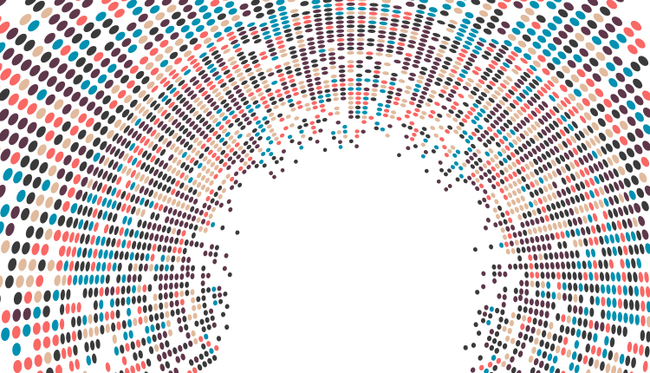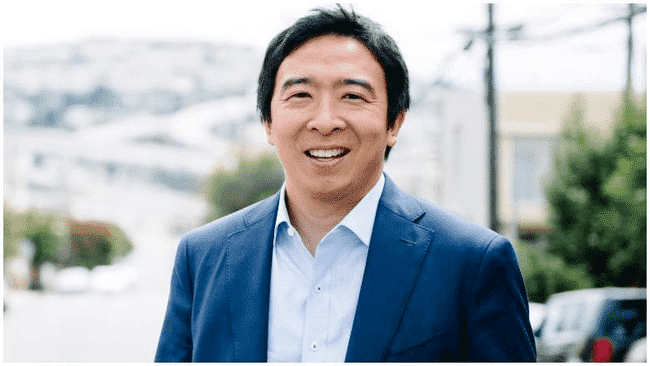The Need for Post-Capitalism

When I saw Yuval Harari live with Sam Harris in San Francisco, I heard a lot of interesting things. But the most interesting thing I heard that night was from Harari, when he said something like:
Forms of government have periods where they’re best suited, based on the evolution of the people at that moment. And as the people change, so must how we manage ourselves.
An imperfect paraphrasing of live comments by Yuval Harari in 2018
An imperfect paraphrasing of live comments by Yuval Harari in 2018This shook me when I heard it, because I think the example he used was democracy.
It’s hard to know how much of this was his thought vs. mine after the fact, but I’m giving credit regardless.
He talked about older forms of government, which worked at the time but became outmoded, and then said that democracy is about to go out of style as well. Not just because it’s not fashionable, but because it’s no longer functional.

That got me thinking about when Picard gave someone a lecture in Star Trek the Next Generation. They were asking about money, and Picard explained how that was no longer a priority for them, because now they care about exploration.
I wish we were at that point, but we’re not.
Post-capitalism doesn’t mean Socialism
The problem we have right now is many have diagnosed the problem correctly, but have become obsessed with the wrong medicine. Marx had the same issue. He nailed the fact that Capitalism had issues, but he thought—and many in 2019 are thinking—that the answer is to give the poor the resources of the rich.
Marx and many today were right that Capitalism is failing the masses, but they’re wrong in thinking that Socialism is the answer.
The fix isn’t redistribution, or Socialism—it’s actually much harder and simpler than that. We have to change what we value.
We have to move from valuing the amassing of wealth to valuing the thriving of humanity as a race. We have to move from consumerism to experiencism. We have to move from epitomizing power to epitomizing creativity.
That’s a loose estimate based on reading a number of reading on the topic.
And we have to do it fast, because we’re about to be looking at a world were 85% of the U.S., and 95% of the world, is not terribly needed for regular work.
This isn’t a work problem though—it’s a meaning problem.
We need new ways for people to find meaning in life, besides the ones given to us by evolution and the toiling difficulty of everyday life.
You can’t take away peoples’ jobs and their value to society—or have that be taken away naturally by the efficiencies of automation and AI—and then expect them to be happy with a monthly stipend.
People don’t need money; they need to feel valued. People don’t need payment; they need respect. And people don’t need handouts; they need to earn their way. That’s what evolution rewards, and it’s what our societies have always been based on.
Post-capitalism
We had monarchies. We had socialism. We had totalitarian regimes. And we had religions, like Catholicism and Capitalism (Harari).
But now it’s time for the next thing, and it’s not Socialism.
Socialism is an (inferior) peer to Capitalism. It’s for a certain stage in our human development. A stage before we could automate most of the work out of our hands.
Once the algorithms and machines can do most of the work, we’ll need something way different.
Andrew Yang thinks it’ll be social capital, i.e., doing nice or useful things for others, which will be traded as currency.

I think the answer is something like that, but that truly immersive VR Video Games will be a major part of the solution. I think the solution will be to recreate real-world value systems (but hopefully less nasty) within the game world, and to trade capital based on what you do in-game.
So you can still be a cop, or a firefighter, or a scientist—all in-game, and you’ll still get all the benefit as if it were the real world.
But this is so far away!
And that’s assuming we make it there.
We have to make it through the phase where only 5-15% of the world is thriving while the rest struggle and suffer. And that situation brings with it the very real possibility of turmoil, revolution, and backward steps in civilization.
The solution is moving to Post-capitalism before that happens.
We have to find a way to give meaning and a sense of value to the billions of people who are losing it as we speak.
And we don’t have much time.